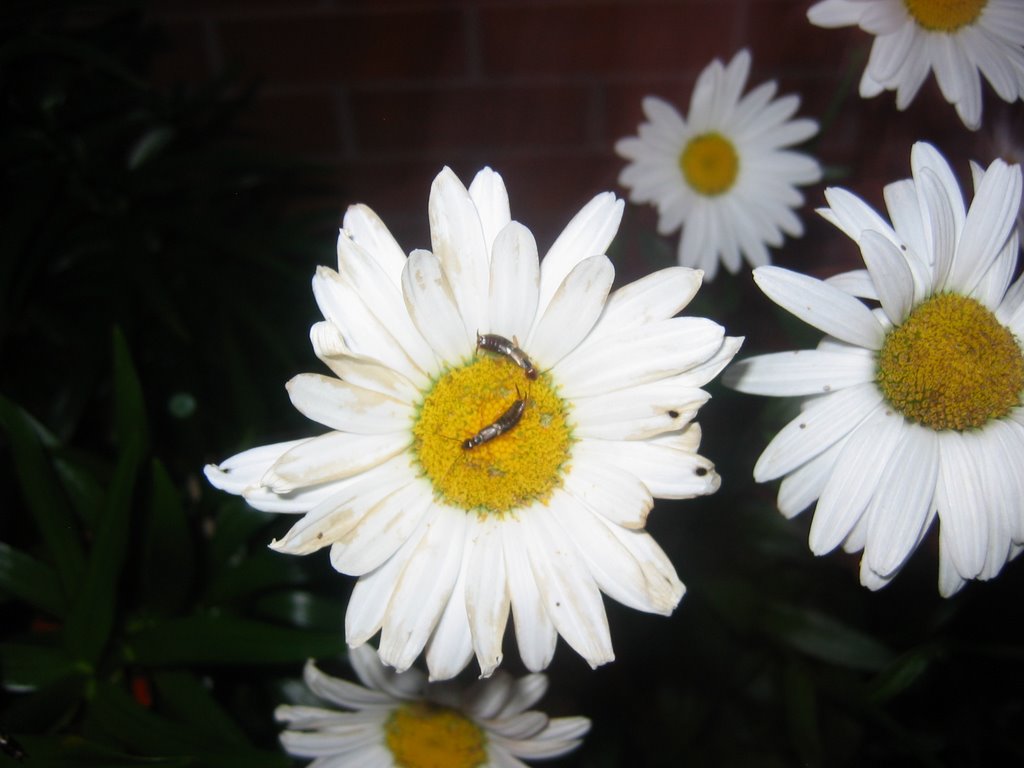You learn something new every day
 Earwigs, it would appear, in addition to their diet of rotting vegetable matter and any seedlings I particularly prize, are also inordinately fond of pollen.
Earwigs, it would appear, in addition to their diet of rotting vegetable matter and any seedlings I particularly prize, are also inordinately fond of pollen.
I had never come across this fact in any of my reading, but as I was conducting my nocturnal earwig/slug raids, I couldn't help but noticing that I would keep finding them in the dead center of my Becky daisies. My suspicions were confirmed when I turned my attention to my lilies. There, on each pollen-bearing anther, was one very happy little earwig. I didn't think to take a picture at the time, and when I returned the next night with my camera, the pantry was apparently pretty picked over, but I still managed to find one malfeasant picking at the leavings.
My suspicions were confirmed when I turned my attention to my lilies. There, on each pollen-bearing anther, was one very happy little earwig. I didn't think to take a picture at the time, and when I returned the next night with my camera, the pantry was apparently pretty picked over, but I still managed to find one malfeasant picking at the leavings.
Back inside, I googled "earwigs pollen" and discovered that yes, indeed, earwigs are known for their pollen-eating habits, which are disruptive primarily to hybridizers.
About the only difference this makes to me as a gardener who doesn't dabble in hybridizing is that I have to resist the urge to spray them right on the flowers. While leaves hold up for the most part quite well under the ammonia/soap spray, petals take to it much less kindly. So it's best to find a way to knock them into a bowl instead, which is a little more difficult when holding a flashlight. On the other hand the little beasties will often hide out in any available crevices of flowers such as lilies and roses for the day, making this a prime spot to catch them during day-time raids.
Technorati tags: Earwigs, Pollen


2 comments:
Janet...I am a little behind on this one BUT...I have also found earwigs hiding in my daylily petals during the day...and they have completely eaten most of my daisy petals and centers....I hate those little guys! In the spring I was at war with snails, now I know that earwigs are worse!
Charlotte, I've found earwigs to be a bigger problem for me too. Maybe it's a climate thing, I don't know. I fought them actively for a couple of weeks, which brought them down to acceptable levels, although fewer would still be better.
Post a Comment